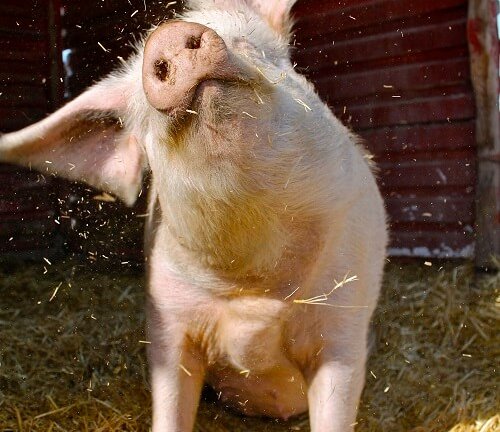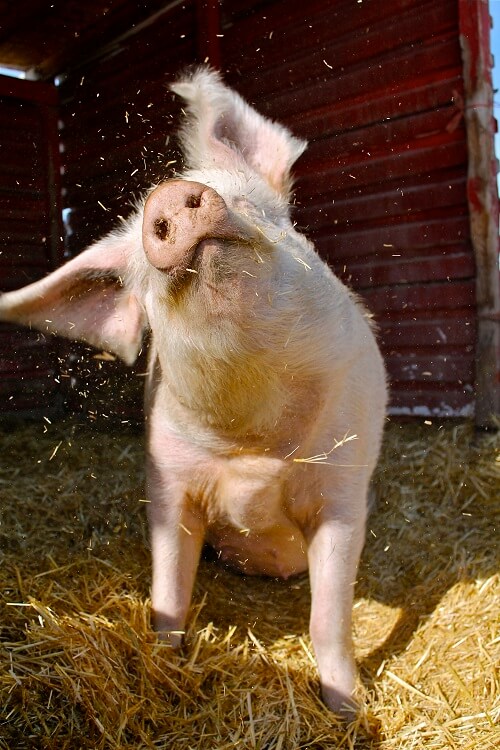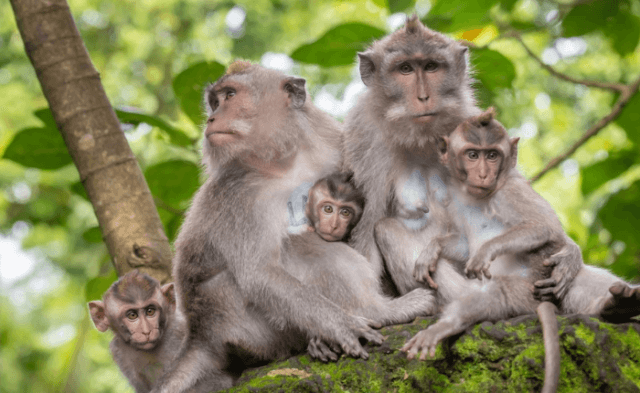Even though educators all over the world use a variety of techniques and strategies to impart knowledge, there is always common ground where basic and rational expectations will meet. Regardless of the subject taught, most educators want to help their students become respectful, responsible, and reliable citizens. Problems occurs, though, when humane considerations are grossly overlooked to the point that a kind of conditioned ethical blindness is actually being taught.
The controversy about what should or should not be taught in our public schools is ongoing. The vital point is to call attention to the way that some of our public schools, supported by our tax dollars, are training young people to be indifferent and insensitive.
Some years ago, in Tucson, Arizona, Cindy Konrath, a fifth-grade teacher at Dietz Elementary School, was concerned because her students did not know that ham came from pigs. So she got these young and impressionable children involved in an ill-conceived project that exposed them to emotional distress. The children were asked to raise two pigs for slaughter. They walked, fed, watered, bathed, and brushed these animals as part of their daily routine, but in the performance of their duties, I am absolutely sure that they also came to love them. These pigs were also given names, and the minute that happened, they became part of the children’s lives. Oreo and Licorice became their companion animals. How could anyone be so blind as to deny the natural and spontaneous bond that arises between children and animals? How could anyone believe that these kids would look at these animals as mere objects to be slaughtered at the end of their project?
In order to mislead the school community and public opinion, Konrath declared to the media that her students knew about the fate of their pigs from the beginning. These fifth graders formed a bond with the pigs that their teacher intended to break by forcing the children to commit the ultimate act of betrayal: sending the animals to slaughter. Did the children understand the kind of suffering that their beloved pigs would have to endure at a slaughterhouse? Did the teacher bring closure to the lesson by explaining the crude reality of factory farming? If her initial intention was to teach the children about how a sentient being becomes food, she failed to take the impact of the final step into consideration. She intentionally misled the children out of a fear that they would protest and reject her insensitive project.
First experiences always leave a strong impression or mark on us. Children’s minds are particularly impressionable and can be easily overloaded. Depending on our life experiences, we can remain relatively innocent or be exposed to enough negative stimuli to become desensitized. Because of the numerous violent episodes that have occurred in different schools all over the country, we have been forced to confront the impact that violence, cruelty, and desensitization have played in the lives of our children.
Although some of us are taught the value of being kind to animals at an early age, the reality is that animals are mistreated in our society on a massive scale. People cannot live their lives based on double standards. It is impossible to preach kindness to animals and, at the same time, overlook the cruelty commonly and systematically inflicted on them. Classic examples of cruelty to animals include circuses, rodeos, and painful experiments, but we should not overlook that schools in our local neighborhoods often brainwash children to believe that animals are here just for the purpose of being used and abused.
As concerned citizens and taxpayers, we should always be ready to defend and promote the concept of humane education for our children. Humane education is not only about kindness toward animals—it must also promote compassion and respect for all living beings. Our educational institutions have to be open to the latest research conducted by experts in the fields of education, child psychology, and criminology, which overwhelmingly have demonstrated that a child raised with the principles of compassion, respect, kindness, and empathy is much more likely to develop into an adult who exhibits altruistic behavior.
Konrath said, “Pigs are in this world to become food.” How misguided! The children who raised Oreo and Licorice never saw them as food. They became friends. Every single creature who shares this world with us has a purpose, a reason to exist, and the right to live a life free from cruelty and abuse.
Dostoyevsky once said, “Compassion is the chief law of human existence.” As animal advocates, our goal should be to create a better and more compassionate world for all.






